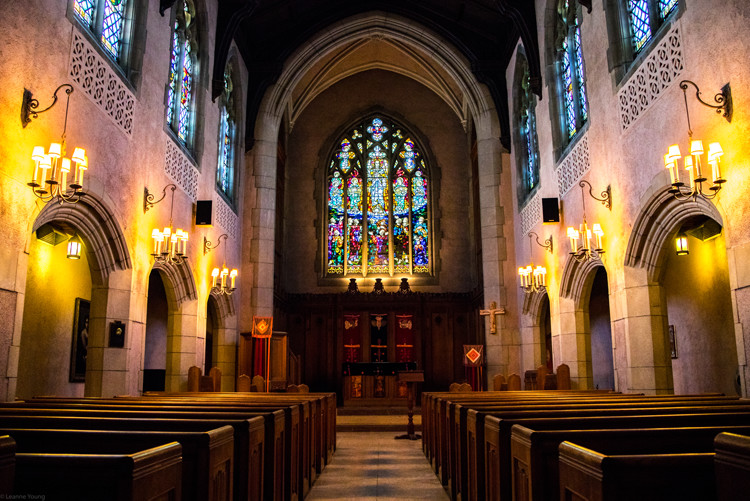On Dec. 6, close to 40 members of the McGill community attended a vigil in the Birks Heritage Chapel. The Sexual Assault Centre of the McGill Students’ Society (SACOMSS) organized the event to commemorate the École Polytechnique massacre which took place 34 years ago and in which fourteen women were killed. The shooter carried out his act to “fight feminists,” one of the deadliest mass school shootings in Canadian history.
By hosting the event, SACOMMS aimed not only to commemorate the shooting but to look to its legacy.
“We hope to provide an inclusive, non-judgemental, supportive environment for members of our community to both honour the survivors of past injustices and reflect on how we can better fight acts of gendered and sexual violence today,” the Facebook event description read.
Students and members of the Montreal community sang, played music, and recited poems to honour the 14 women who died in the massacre, and to stand in solidarity with those who have experienced gendered and sexualized violence. The participants then lit candles and remembered those lost in silence.
Remembering the Polytechnique massacre offers the opportunity to reflect on the pervasiveness of gendered and sexual violence. Peeha Luthra, U1 Arts, explained how the Polytechnique massacre has left its mark on the Montreal community.
“The Polytechnique massacre became a representation of gender-based violence in our world and conveys the idea that this problem and this pain is ongoing,” Luthra said. “I think that coming together to remember the past is very much linked to standing in solidarity for what’s going on right now.”
According to Elena Basford, a former McGill Arts student, the vigil is important for three major reasons: Commemorating the loss of the fourteen women, bringing people together, and educating them about gendered violence.
“These were 14 vibrant, brilliant young people and no matter where their lives would have taken them, it’s a loss that they aren’t here with us today,” Basford said.
Basford emphasized the vigil’s ability to strengthen the bonds of the Montreal community.
“This event is important because it offers a space where people can come together,” Basford said. “It takes something that isolates people like violence and turns that into something that builds community.”
Basford stressed the importance of universities as channels for education at commemorative events.
“It’s a great way to educate people, having this at a university,” Basford said. “[The vigil] is a very open forum, permitting people to come and go as they can. It keeps it accessible for people that are on campus and really busy studying.”
Kaitlin Wong, U1 Arts, argued that small acts are essential to fighting gendered and sexual violence.
“Just being here, believing, being a friend,” Wong said. “Asking ‘how are things going?’ ‘do you feel supported on this campus?’ [….] Many like to be more vocal and share on social media, organize rallies [….] All those things are good ideas. I think it’s also important to appreciate people who are quiet and supportive as well.”
Luthra underlined the importance of allyship in gendered and sexual based violence.
“It’s the small actions that buildup, like the vigil,” Luthra said. “When you see everything that’s going on it can seem insignificant, but when you come and you hear the experiences you realize it’s so much more than that. It’s coming together that influences individual lives.”








